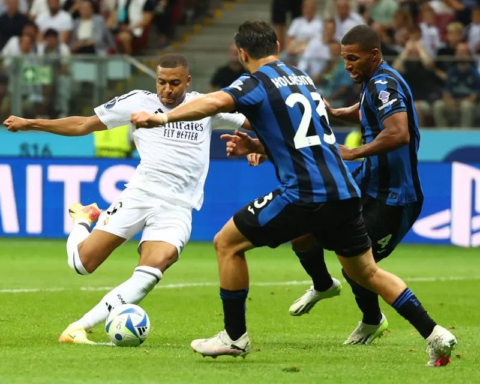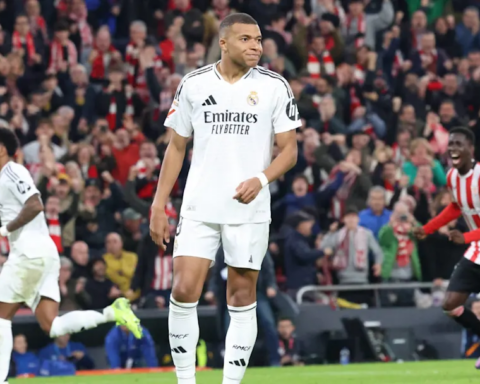In the quest for peak performance, athletes have long recognized that nutrition is a cornerstone of success. The relationship between diet and athletic prowess is complex and multifaceted, involving a balance of macronutrients, micronutrients, hydration, and timing. Understanding how nutrition impacts athletic performance can make the difference between winning and losing, and it can also contribute to an athlete’s overall health and longevity in their sport. This article delves into expert insights on how proper nutrition can enhance athletic performance.
The Role of Macronutrients
Macronutrients—carbohydrates, proteins, and fats—are the building blocks of an athlete’s diet, each playing a crucial role in energy production, muscle repair, and overall performance.

Carbohydrates
Carbohydrates are the primary energy source for high-intensity exercise. Stored as glycogen in the muscles and liver, carbohydrates provide the fuel necessary for sustained physical activity. Sports nutritionists recommend that athletes consume a diet rich in complex carbohydrates, such as whole grains, fruits, and vegetables, to maintain glycogen stores. Pre-event carbohydrate loading is a common strategy to maximize glycogen reserves, enhancing endurance and performance.
Proteins
Proteins are essential for muscle repair and growth. During exercise, especially resistance training, muscle fibers undergo microscopic damage, which necessitates repair. Amino acids from dietary proteins are the building blocks for this repair process. Athletes are advised to consume high-quality protein sources, such as lean meats, dairy, beans, and nuts. Post-exercise protein intake is particularly important, with research suggesting that consuming protein within 30 minutes to two hours after exercise can optimize muscle repair and growth.
Fats
Fats are a concentrated energy source, important for longer, lower-intensity activities. Healthy fats, such as those found in avocados, nuts, seeds, and fish, support prolonged energy release and are vital for the absorption of fat-soluble vitamins (A, D, E, and K). Balancing fat intake is crucial, as too much can lead to unnecessary weight gain, while too little can affect overall energy levels and performance.
Micronutrients and Their Importance
While macronutrients are essential for energy and muscle function, micronutrients—vitamins and minerals—play critical roles in a myriad of physiological processes that affect performance.
Vitamins
Vitamins such as B-complex, C, and D are pivotal for energy production, immune function, and bone health. B vitamins (B1, B2, B6, and B12) are involved in energy metabolism, while vitamin C is crucial for tissue repair and immune defense. Vitamin D, often obtained from sunlight, is essential for bone health and muscle function. Athletes, especially those training indoors or in regions with limited sunlight, may require supplementation to maintain optimal levels.
Minerals
Minerals like calcium, iron, and magnesium are vital for muscle function and endurance. Calcium is crucial for muscle contraction and bone strength. Iron is a component of hemoglobin, necessary for oxygen transport in the blood, and its deficiency can lead to fatigue and decreased performance. Magnesium plays a role in muscle relaxation and energy production. Ensuring adequate intake of these minerals through diet or supplements can help prevent deficiencies that impair performance.
Hydration and Athletic Performance
Hydration is a key factor in maintaining performance, particularly in endurance sports. Dehydration can lead to reduced blood volume, decreased sweat rate, elevated body temperature, and increased fatigue, all of which impair athletic performance.
Importance of Hydration
Athletes lose significant amounts of water and electrolytes through sweat during exercise. Replenishing these losses is crucial to maintain blood volume, regulate body temperature, and allow for efficient muscle contractions. Sports drinks containing electrolytes (sodium, potassium, and magnesium) are beneficial during prolonged or intense exercise sessions, as they help replace lost fluids and electrolytes more effectively than water alone.
Strategies for Hydration
Pre-exercise hydration strategies include consuming 500-600 ml of water or a sports drink two to three hours before exercise and an additional 200-300 ml 20 minutes before the start. During exercise, athletes should aim to drink 200-300 ml of fluid every 20 minutes. Post-exercise rehydration should focus on replacing fluid lost during the activity, typically measured by weighing the athlete before and after the session. For every pound lost, approximately 500 ml of fluid should be consumed.
Timing of Nutrient Intake
The timing of nutrient intake can significantly affect performance and recovery. This concept, known as nutrient timing, emphasizes consuming specific nutrients at strategic times to maximize their benefits.
Pre-Exercise Nutrition
Consuming a balanced meal with carbohydrates, protein, and a small amount of fat 2-3 hours before exercise can optimize energy levels and performance. For those unable to eat a full meal, a smaller snack rich in carbohydrates and protein about 30-60 minutes before exercise can also be beneficial.
During Exercise
For endurance events lasting more than an hour, consuming carbohydrates during exercise can help maintain blood glucose levels and delay fatigue. Options include sports drinks, energy gels, and bars designed to provide quick-digesting carbohydrates.
Post-Exercise Nutrition
Post-exercise nutrition focuses on replenishing glycogen stores and repairing muscle tissue. A combination of carbohydrates and protein is ideal, with a recommended ratio of 3:1 (carbohydrates to protein). This combination enhances glycogen synthesis and muscle repair, speeding up recovery and preparing the body for the next training session.
Expert Insights
Leading sports nutrition experts emphasize the importance of individualized nutrition plans tailored to the specific needs, goals, and physiology of each athlete. Dr. Louise Burke, a prominent sports dietitian, advocates for periodized nutrition—adjusting dietary intake according to the training cycle and competition schedule. This approach ensures that athletes receive the right nutrients at the right times, optimizing performance and recovery.
Dr. John Berardi, co-founder of Precision Nutrition, highlights the significance of practical and sustainable nutrition strategies. He advises athletes to focus on whole, minimally processed foods and to develop a consistent eating routine that aligns with their training demands. Dr. Berardi also emphasizes the role of behavior change and habit formation in achieving long-term nutritional success.
Nutrition is a fundamental pillar of athletic performance, influencing energy levels, muscle function, recovery, and overall health. By understanding the roles of macronutrients, micronutrients, hydration, and nutrient timing, athletes can optimize their diets to enhance performance. Expert insights underscore the importance of personalized and periodized nutrition plans, emphasizing the need for practical and sustainable dietary strategies. As athletes strive for excellence, a well-balanced and thoughtfully planned nutrition regimen can provide the competitive edge necessary for success.







